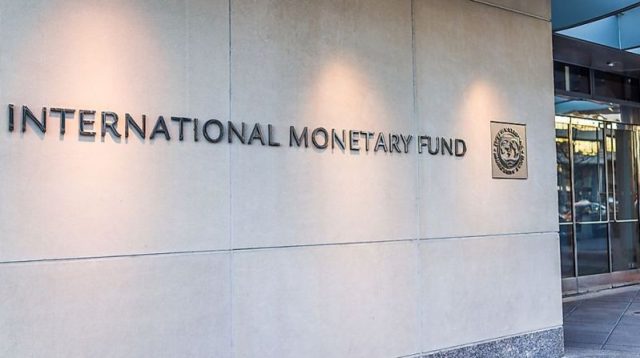TUE 08 FEB, 2022-theGBJournal- The International Monetary Fund (IMF) Monday demanded major reforms from the Federal Government of Nigeria in the fiscal, exchange rate, trade, and governance areas to lift long-term, inclusive growth.
The IMF made the press after its Executive Board concluded their Article IV consultation with Nigeria. The Directors highlighted the urgency of fiscal consolidation to create policy space and reduce debt sustainability risks. In this regard, they called for significant domestic revenue mobilization, including by further increasing the value-added tax rate, improving tax compliance, and rationalizing tax incentives.
The IMF also urged the removal of untargeted fuel subsidies, with compensatory measures for the poor and transparent use of saved resources. They stressed the importance of further strengthening social safety nets.
The IMF welcomed the removal of the official exchange rate and recommended further measures towards a unified and market-clearing exchange rate to help strengthen Nigeria’s external position, taking advantage of the current favourable conditions.
They noted however, that exchange rate reforms should be accompanied by macroeconomic policies to contain inflation, structural reforms to improve transparency and governance, and clear communications regarding exchange rate policy.
The IMF said it considered it appropriate to maintain a supportive monetary policy in the near term, with continued vigilance against inflation and balance of payments risks., and encouraged the authorities to stand ready to adjust the monetary stance if inflationary pressures increase.
They also recommended strengthening the monetary operational framework over the medium term—focusing on the primacy of price stability—and scaling back the central bank’s quasi-fiscal operations.
The IMF said they welcomed the resilience of Nigeria’s banking sector and the planned expiration of pandemic-related support measures. They agreed that while the newly launched eNaira could help foster financial inclusion and improve the delivery of social assistance, close monitoring of associated risks will be important. They also encouraged further efforts to address deficiencies in the AML/CFT framework. They emphasized the need for bold reforms in the trade regime and agricultural sector, as well as investments, to promote diversification and job-rich growth and harness the gains from the African Continental Free Trade Agreement. Improvement in transparency and governance are also crucial for strengthening business confidence and public trust. Directors called for stronger efforts to improve transparency of COVID-19 emergency spending.
More importantly, they noted that Nigeria’s capacity to repay the Fund is adequate. They encouraged addressing data gaps to allow timely and clear assessments of reserve adequacy.
Meanwhile, the Washington-based lender warned that the Federal Government could spend as much as 92.6 per cent of its revenue on debt servicing this year, estimating the debt-servicing-to-consolidated revenue (total revenues of the government and its agencies) for 2021 and 2022 at 29 and 32.8 per cent respectively.
It also expects the public debt to grow by 117.8 per cent on a year-on-year basis in 2022, just as inflation is to grow at an average rate of 14.3 per cent.
The IMF equally projects revenues and grants in the year to cap at seven per cent of total output.
Twitter-@theGBJournal|Facebook-The Government and Business Journal|email: govandbusinessj@gmail.com|










